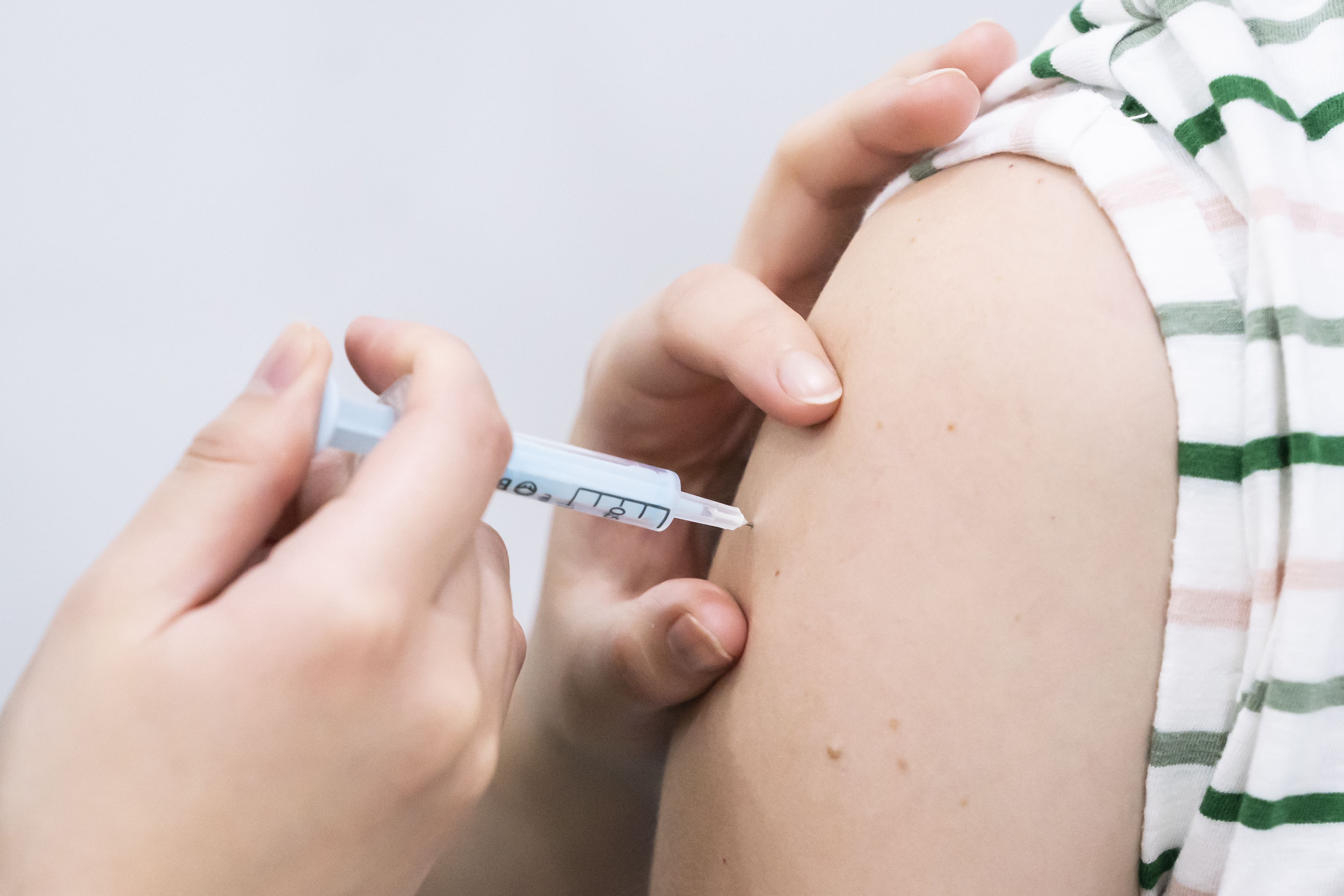Covid jabs could have prevented 7,180 summer hospital admissions and deaths, study shows
Experts have warned new Covid-19 variant Juno will surge as children go back to school
Your support helps us to tell the story
From reproductive rights to climate change to Big Tech, The Independent is on the ground when the story is developing. Whether it's investigating the financials of Elon Musk's pro-Trump PAC or producing our latest documentary, 'The A Word', which shines a light on the American women fighting for reproductive rights, we know how important it is to parse out the facts from the messaging.
At such a critical moment in US history, we need reporters on the ground. Your donation allows us to keep sending journalists to speak to both sides of the story.
The Independent is trusted by Americans across the entire political spectrum. And unlike many other quality news outlets, we choose not to lock Americans out of our reporting and analysis with paywalls. We believe quality journalism should be available to everyone, paid for by those who can afford it.
Your support makes all the difference.More than 7,000 hospital admissions and deaths in the UK could have been avoided in summer 2022 if people had received all their Covid jabs, research shows.
Experts found that between a third and a half of people had not had the recommended number of Covid vaccinations and boosters by 1 June, 2022: almost 27 million people in England alone.
The study looking at the whole UK population warned that gaps in vaccine coverage drove 7,180 hospital admissions and deaths during the summer of 2022.

Led by Health Data Research UK (HDR UK) and the University of Edinburgh, the study used anonymised health data for the population of 67 million people in all four nations of the UK.
People aged five and over were looked at, with under-vaccination defined as not having had all doses for which they were eligible.
The highest rates of under-vaccination were found in younger people, men, those in areas of higher deprivation, and people of non-white ethnicity.
The findings come following a surge of Covid infections across the UK at the end of December. Some hospitals in England have begun enforcing the wearing of masks again, to combat the surge of Covid and winter viruses.
Experts said the new Covid variant – named Juno – is driving the majority of new cases and warned that the return to school will fuel more infections.
The paper gives the first UK-wide look at the link between vaccination coverage and severe Covid outcomes.
Researchers have said their findings, which have been presented to health officials, could be used to help improve winter vaccination campaigns, by helping programmes to better target specific population groups.
Professor Sir Aziz Sheikh, director of the Usher Institute at the University of Edinburgh, HDR UK research director, and study co-lead, said: “Large-scale data studies have been critical to pandemic management, allowing scientists to make policy-relevant findings at speed. Covid-19 vaccines save lives.
“As new variants emerge, this study will help to pinpoint groups of our society and areas of the country where public health campaigns should be focused and tailored for those communities.”
According to the findings, if the UK had been fully vaccinated in June 2022, there might have been 210 fewer five- to 15-year-olds being hospitalised or dying due to severe Covid illness; 1544 fewer 16- to 71-year-olds; and 5426 fewer over-75-year-olds.
Sir Aziz said the database used is the only one of its kind in the world, with its capacity to let researchers use anonymised health data for all four nations of the UK.
He said: “There’s nowhere else in the world that can do this. This is a genuine landmark for the UK. We’ve got absolutely outstanding data assets and brilliant analysts.”
Professor Cathie Sudlow, chief scientist at HDR UK and director of the British Heart Foundation (BHF) Data Science Centre, said: “The infrastructure now exists to make full use of the potential of routinely collected data in the NHS across the four nations of the UK. We believe that we could and should extend these approaches to many other areas of medicine, such as cancer, heart disease and diabetes to search for better understanding, prevention and treatment of disease.”
Join our commenting forum
Join thought-provoking conversations, follow other Independent readers and see their replies
Comments